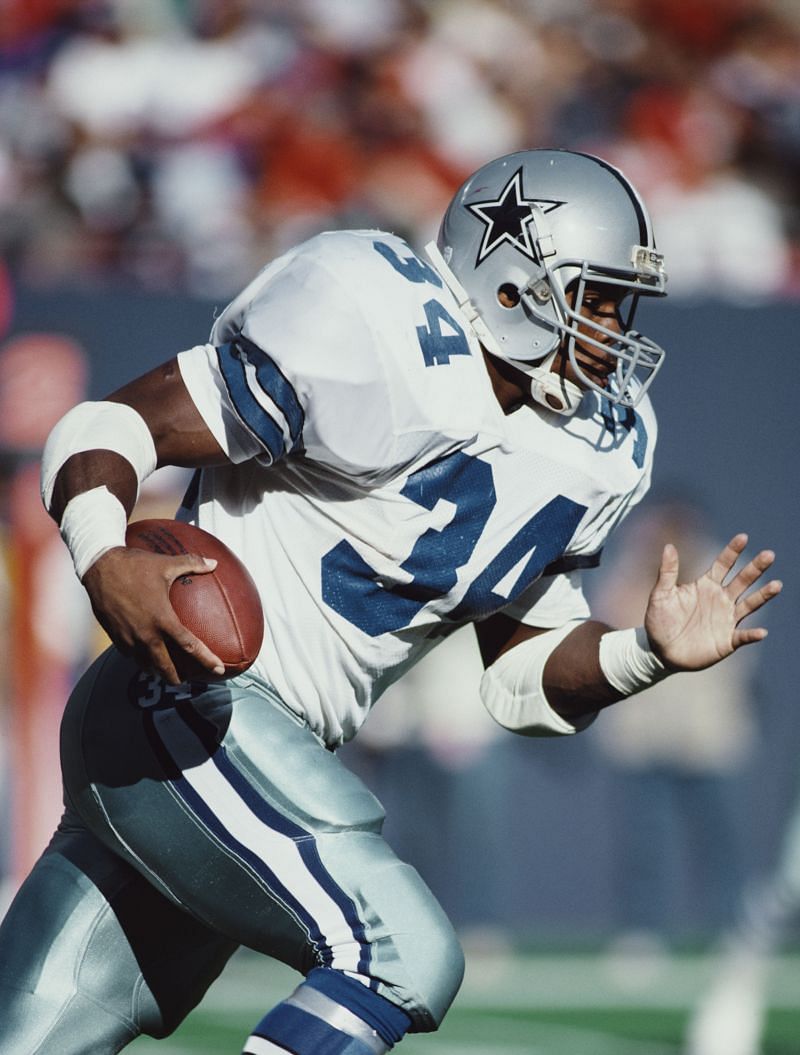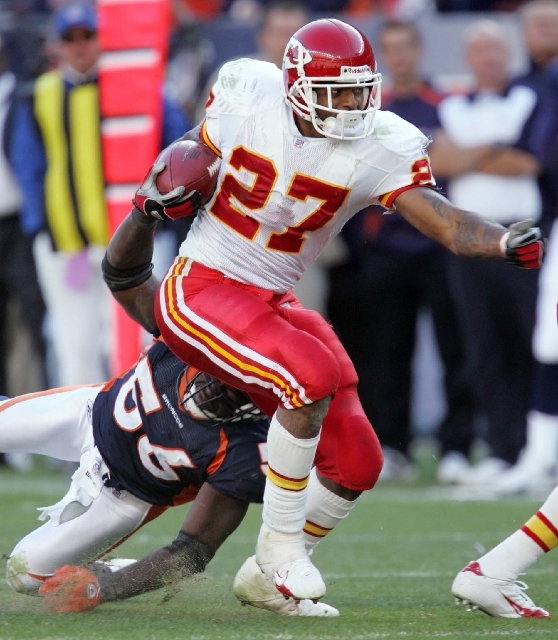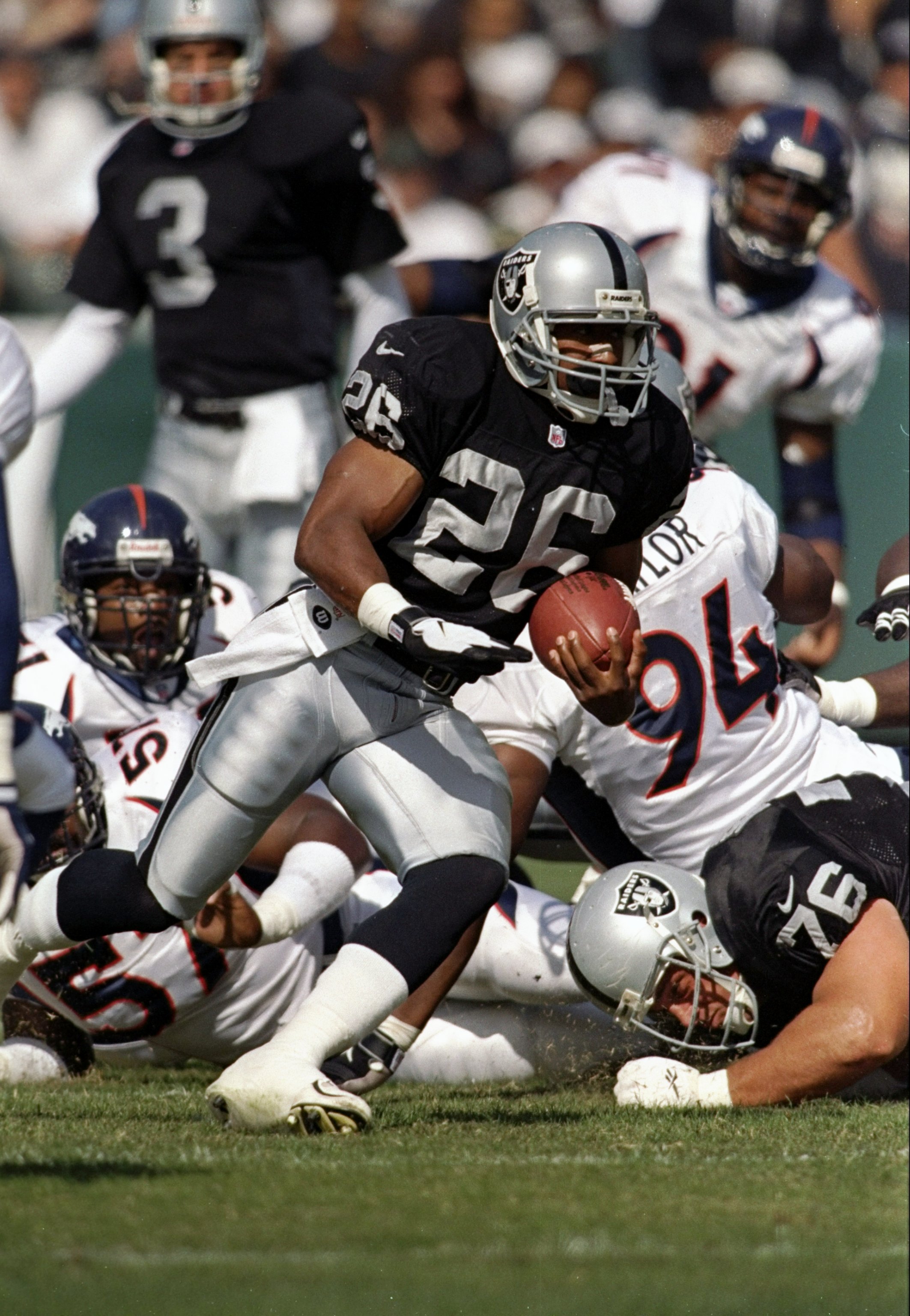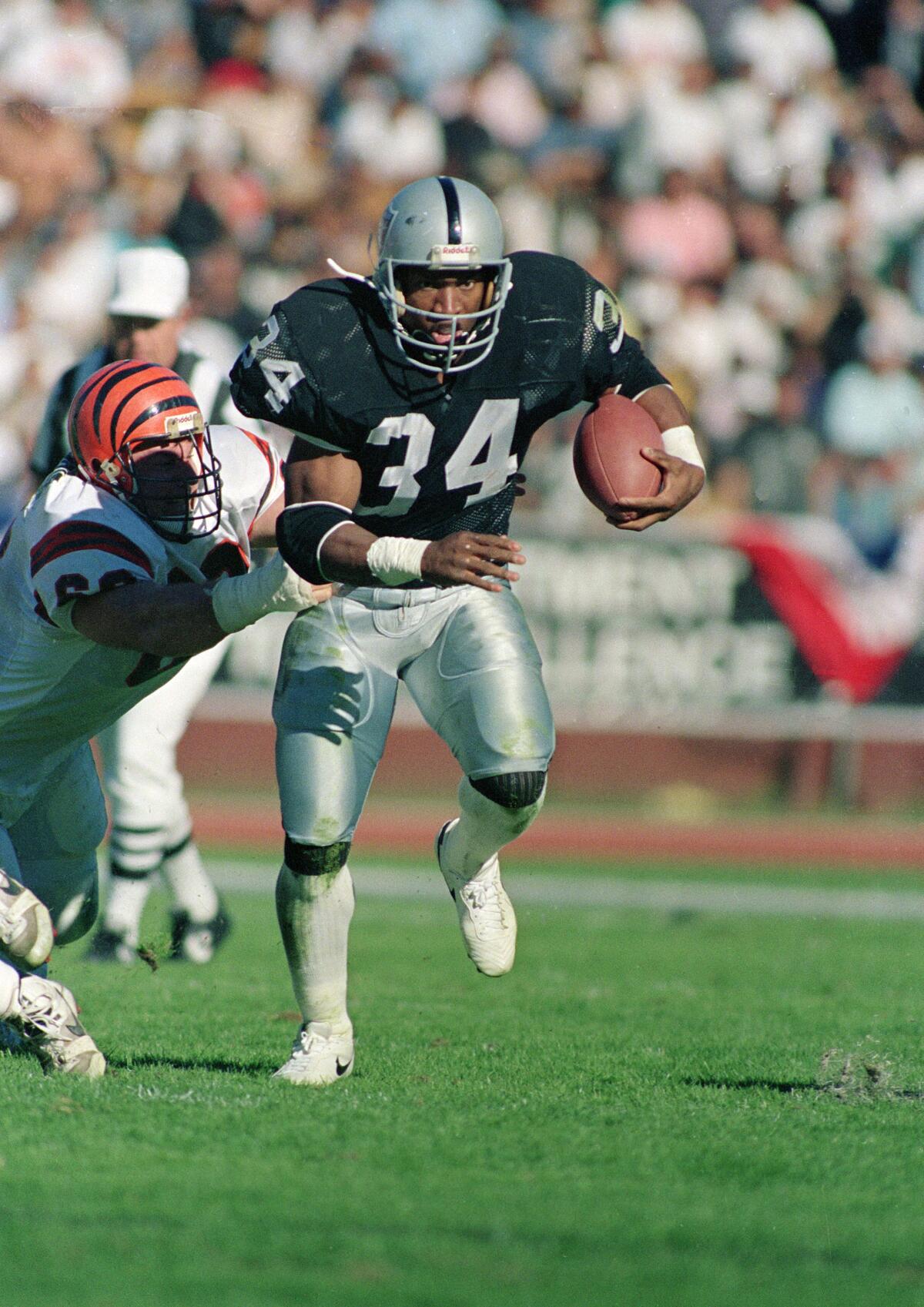Marshawn Lynch
Teams
Buffalo Bills (2007-2010)
Seattle Seahawks (2010-2015, 2019)
Oakland Raiders (2017-2018)
Playoffs
Appearances - 6 (2010,2012,2013,2014,2015,2019)
Conf Champ Games - 2 (2013,2014)
Super Bowls - 2 (2013,2014)
Championships - 1 (2013)
Awards and Honors
All-Pro First Team - 1 (2012)
All-Pro Second Team - 1 (2014)
Pro Bowl - 5 (2008,2011,2012,2013,2014)
All-Time Ranks
Rushing Touchdowns - #17
Rushing Yards - #29
Total Touchdowns - #29
Rushing Yards per Game - #43
Scrimmage Yards - #54
League Leads
Rushing Yards (#3-2012, #4-2014, #6-2013, #7-2011)
Rushing Touchdowns (#1-2013,2014, #3-2011, #5-2012)
Yards per Rush (#6-2012, #10-2014)
Rushing Yards per Game (#3-2012, #5-2014, #7-2007,2013, #9-2011)
Total Touchdowns (#1-2014, #3-2013, #6-2012, #7-2011)
Scrimmage Yards (#4-2012, #5-2014, #6-2013)
After rushing for 1356 yards as a junior at Cal, Marshawn Lynch decided to leave school early to enter the NFL Draft where he was taken with the 12th overall pick by the Buffalo Bills in 2007.
As a rookie, Lynch rushed for 1115 yards and 7 touchdowns, a very solid showing for a rookie, but his usage went down from there with Buffalo. In his third season, he only got 450 rushing yards, and just 4 games into the 2010 season, he was traded to the Seattle Seahawks, a move that saved his career.
His first four seasons in Seattle are what put him on this list. He made the Pro Bowl in each of those seasons, and scored at least 11 touchdowns in each year as well. He rushed for over 1200 yards in each of those 4 years, and was the league leader in rushing touchdowns in both 2013 and 2014.
In 2012 he had a career high with 1590 rushing yards and made his only appearance on the All-Pro First Team, and in 2013, while leading the league in touchdowns, helped the Seahawks reach the Super Bowl for only the second time in their history, and he had 39 yards and a touchdown in their 43-8 victory over the Broncos.
2014 was his best overall season. He had 1306 rushing yards, a career high with 13 rushing touchdowns, best in the league, and had 4 receiving touchdowns, also the best in his career. He helped the Seahawks return to the Super Bowl, where he had 102 yards and a touchdown, but came up just short in the final minute, getting stopped at the 1-yard line as the Seahawks lost 28-24 to New England.
Halfway through the next season, Lynch had to undergo hernia surgery, which sidelined him until the playoffs. He gained only 20 yards in his return during the playoffs, then retired on the day of the Super Bowl.
After a season away, Lynch decided to return to play for the Oakland Raiders, his hometown team, so the Seahawks traded him away. He gained 891 yards in his first season back, but suffered a groin injury in 2018 which limited him to only 6 games, and he decided to retire again.
He remained retired through the 2019 season, until the Seahawks lost their top 3 running backs to injury in quick succession late in the season. They convinced him to return to help them finish out the season, and he played the final game of the regular season, along with 2 playoff games, each with small contributions, before retiring for good.
Lynch was one of the top running backs in the game for a few years with the Seahawks, leading the league in touchdowns twice, making a big contribution to a championship, and reaching another Super Bowl as well. Outside of that great stretch, he was a pretty average back, but he was so good during his time in Seattle that he is one of the top running backs of all time.












































